A BIRTHDAY CELEBRATION featuring Hourman, the Spectre and MUCH MORE…
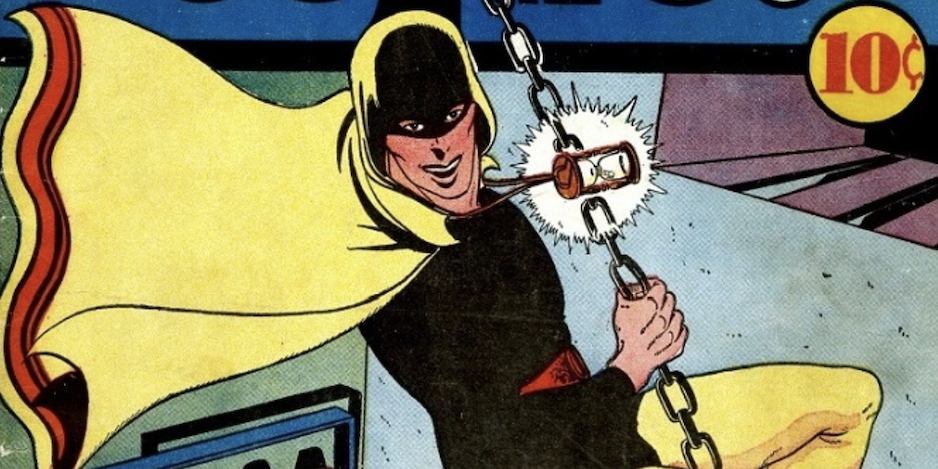
By PETER BOSCH
Bernard Bailynson was born April 5, 1916, in New York and from the first day he picked up a pencil he was headed toward a 45-year career in comics, not only illustrating but also publishing them.
In high school, he was the cartoonist for the school paper and, when he was barely 20 years old in 1936, he was drawing comics professionally, using the name “Bernard Baily.” His first work was for a new comic book publisher, Henle Publications, illustrating a Hollywood trivia page for Wow – What A Magazine! #1 (July 1936). Also included in Henle’s bullpen of young artists and writers were two other newcomers who would go on to become legends — Will Eisner and Bob Kane.
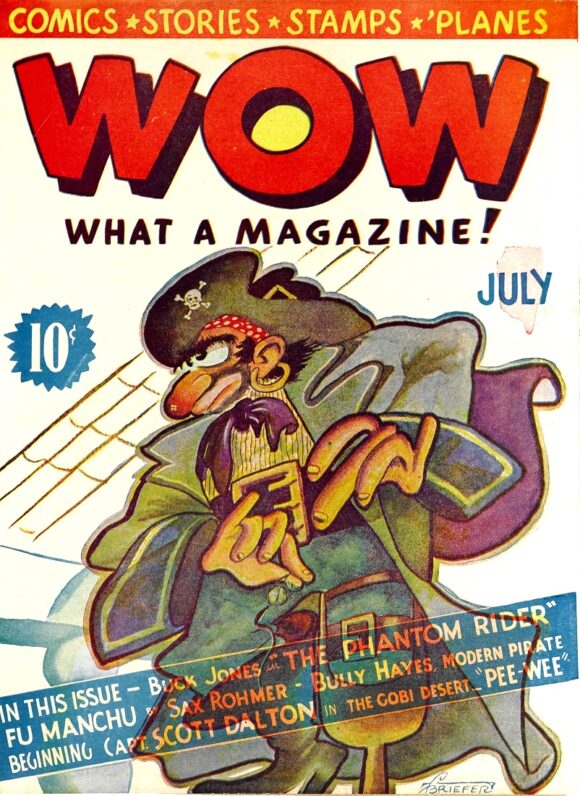
Wow – What A Magazine! #1 (July 1936, Henle). Cover art by Dick Briefer.
Wow – What A Magazine! was cancelled after four issues and they were out of work, including the magazine’s editor, Samuel “Jerry” Iger, who had also served as one of its artists/writers. Iger then partnered with Eisner to form their own studio of talent to produce comic book packages (story, art, etc.) for different publishers. Baily joined the new Eisner-Iger studio and he continued doing his specialty of Hollywood trivia pages, which were placed in comics published by DC, Quality and Fox (at Fox, Baily signed his work under the pseudonym of “Glenda Carol”).
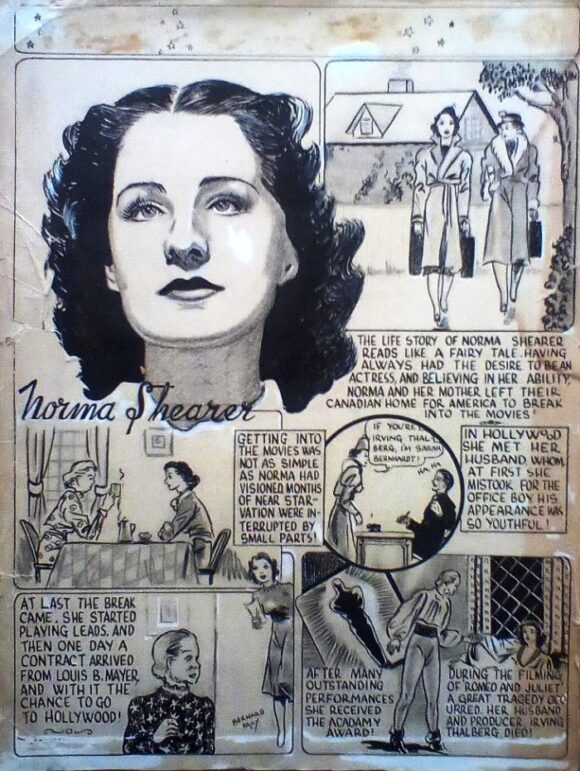
Feature Funnies #2 (Nov. 1937, Quality). Bernard Baily’s very first artwork to appear in a major publisher’s comic book. (Original art from the author’s collection.)
After two years, Baily left the Eisner-Iger studio and co-created “Tex Thomson” with writer Ken Fitch for DC. “Tex Thomson” first appeared in Action Comics #1 (June 1938), an already monumental issue due to Superman’s first appearance. Tex Thomson transitioned to a costumed status with the coming of the World War II, first as “Mr. America,” and then as “Americommando.”
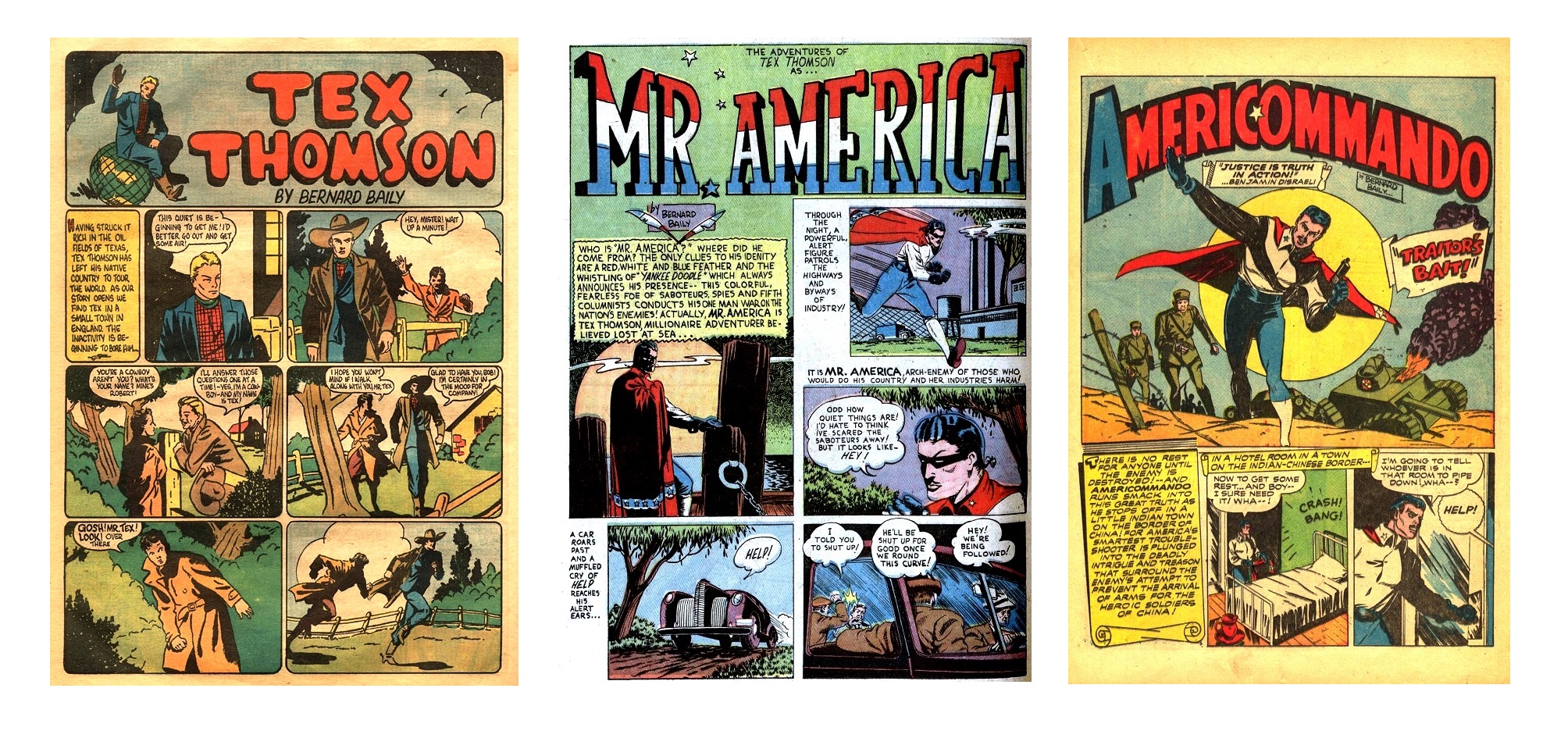
Tex Thomson’s evolution (all by Baily): from (L-R) Action Comics #1 (June 1938, DC); Action Comics #39 (Aug. 1941, DC); and Action Comics #69 (Feb. 1944).
In that same month, Baily’s “The Buccaneer” debuted in More Fun Comics #42 (June 1938). In More Fun Comics #51 (Jan. 1940), the story of “The Buccaneer” came to an end and the last panel announced a major new character starting in the next issue (#52, Feb. 1940), “The Spectre,” which Baily co-created with Jerry Siegel. A month later, “The Hour-Man,” a Fitch and Baily co-creation, debuted in Adventure Comics #48 (Mar. 1940). Both characters would become his most famous creations.
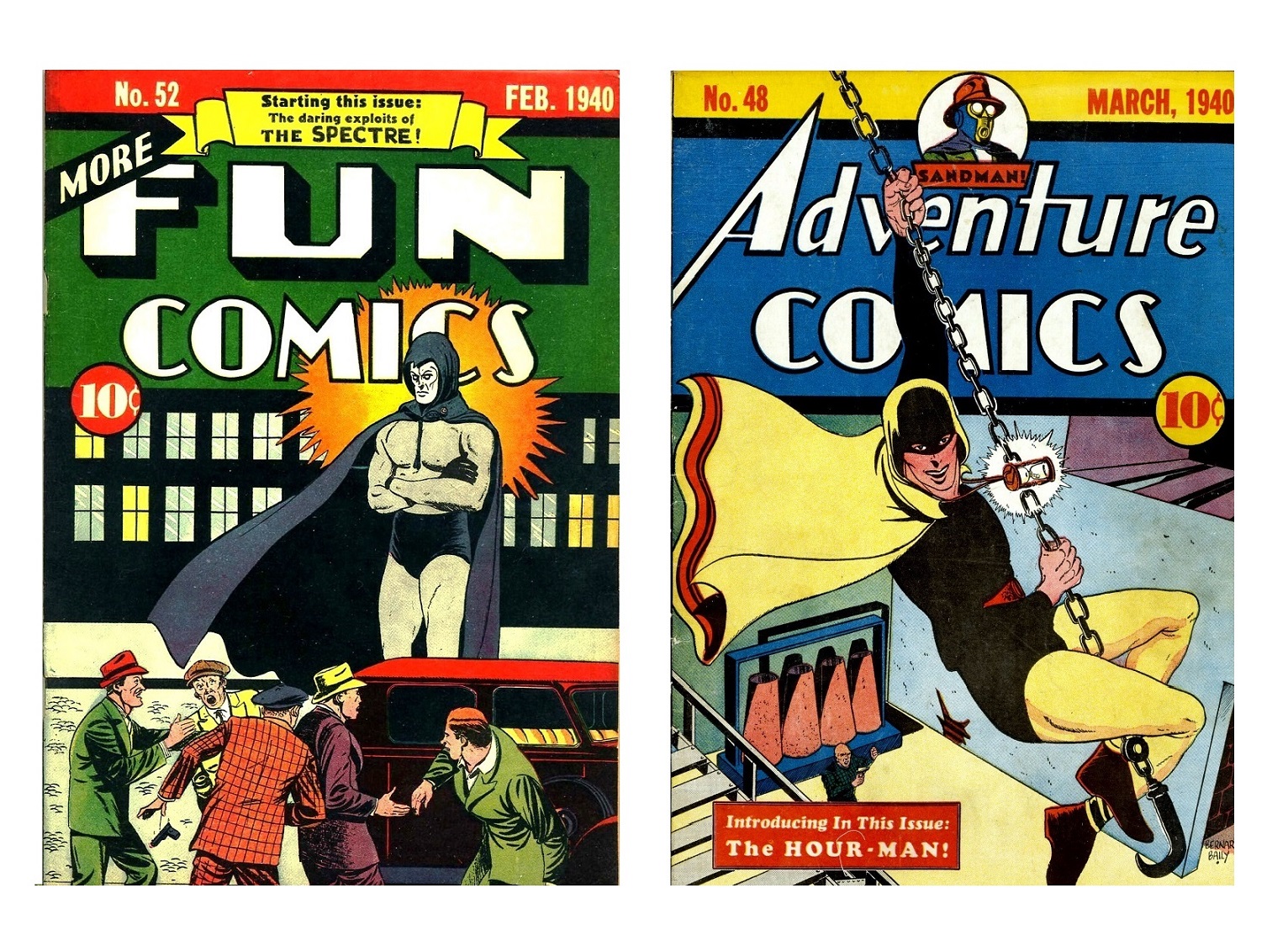
First appearances of the Spectre (More Fun Comics #52, Feb. 1940, DC) and the Hour-Man (Hourman) (Adventure Comics #48, Mar. 1940, DC).
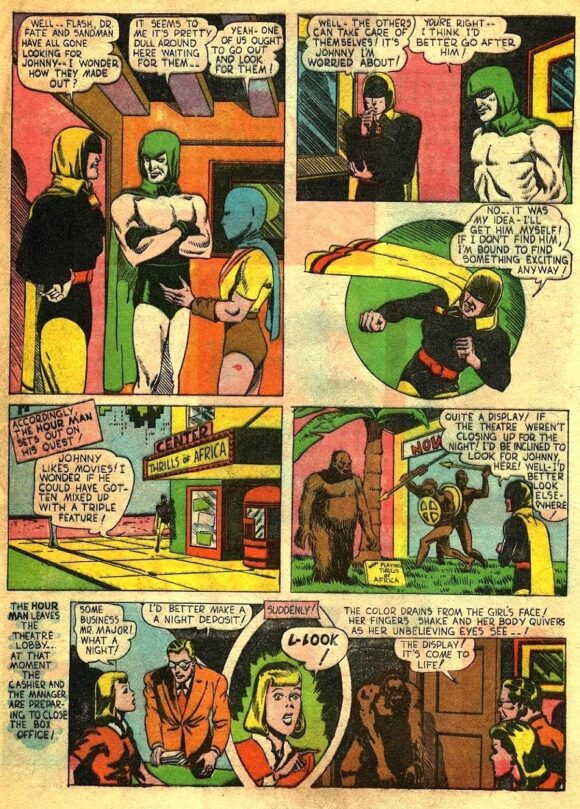
All-Star Comics #6 (Aug.-Sept. 1941, DC). Baily finally getting to draw his two co-creations together (here with the Atom).
In 1943, he partnered with artist Mac Raboy to establish a studio just as Eisner-Iger had done. Among those who worked in the Bernard Baily Studio in the mid-1940s were youngsters bound for fame, including Bernie Krigstein, Dan Barry, Frank Frazetta, Gil Kane and Howie Post.
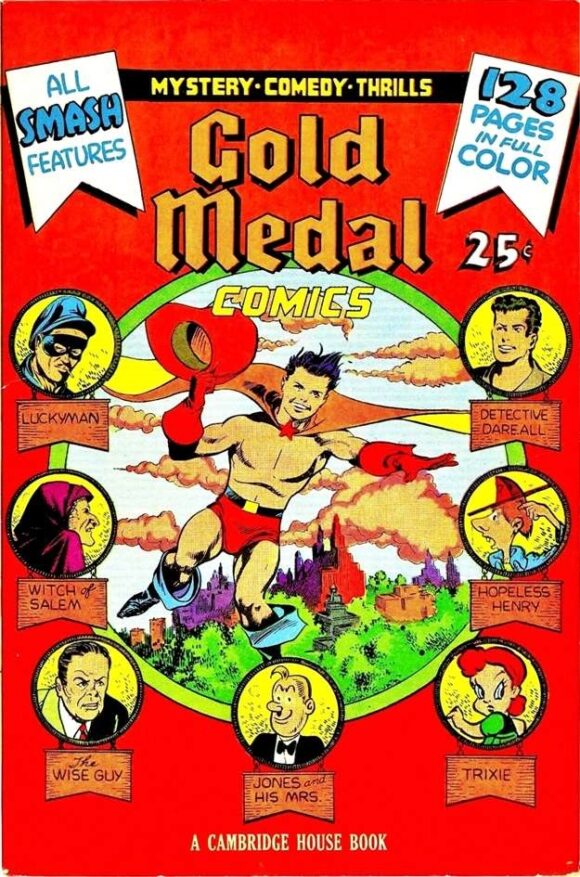
Gold Medal Comics (1945, Cambridge House Publishers). A Baily Studio-packaged comic. Cover art by John Giunta.
At the same time he teamed up with Raboy, the ambitious Baily also started his own small comics publishing company. Among its releases were four comics based on operas, a single issue of Cisco Kid Comics, and Tally-Ho Comics, which contained Frank Frazetta’s first published art.
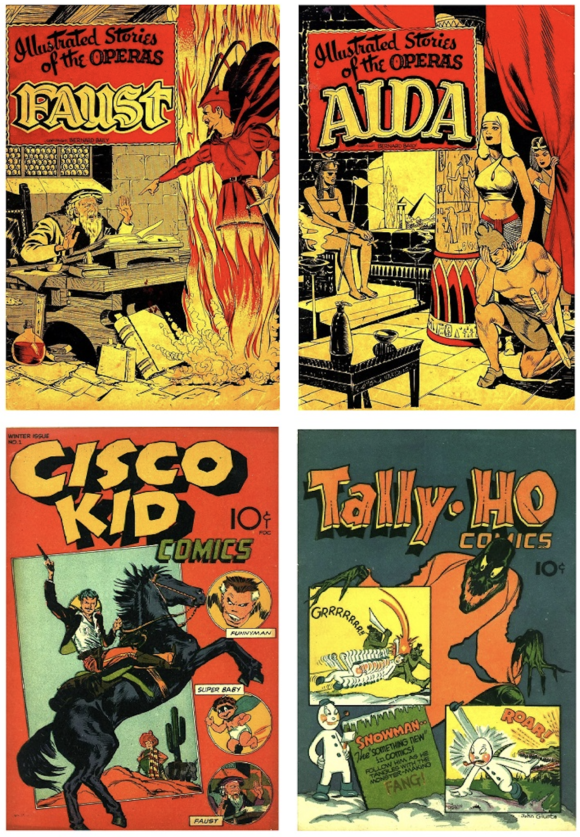
Several of Baily Publishing’s comics – Illustrated Stories of the Operas: Faust and Aida (both 1943) – art by Baily; Cisco Kid #1 and Tally-Ho (both 1944) – John Giunta, covers. (The latter two are listed inside as being published by “Swapper’s Quarterly.”)
The shop closed up in 1946 but Baily kept drawing comics for various publishers, including Fawcett, Star, Stanmor, and Toby Press, as well as dozens of stories for Marvel during their Atlas period in the 1950s. The majority of these assignments were grisly horror tales. However, while he was drawing that kind of work for other companies, he was himself publishing clean magazines for kids, such as For Boys Only and For Girls Only, through his Baily Enterprises.
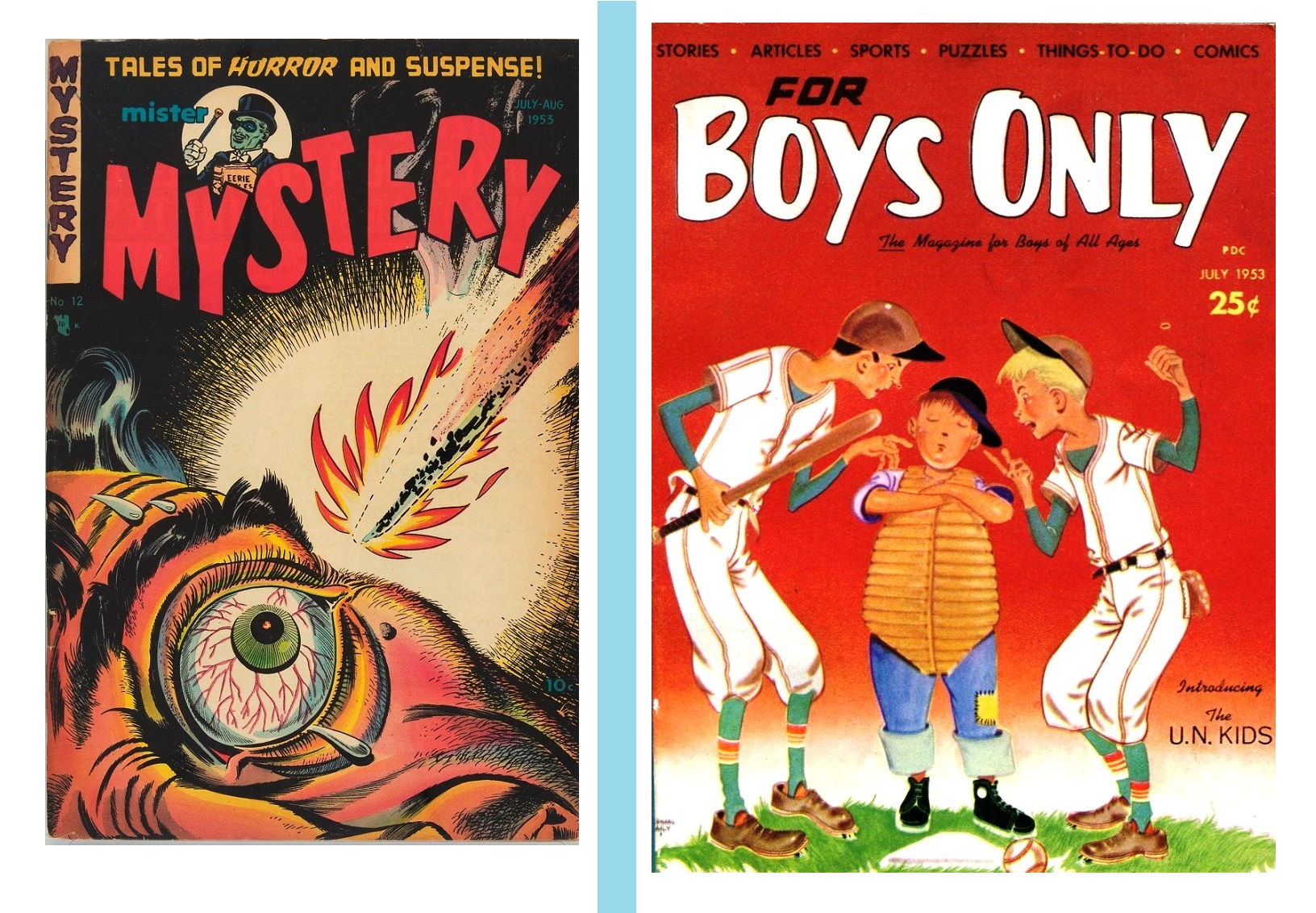
Two wildly different covers in the same month by Bernard Baily. The Mister Mystery #12 (July 1953, Stanley Morse) cover was for hire and the For Boys Only #1 (July 1953) was for his own publishing company.
The greatest amount of his work, though, appeared in DC Comics. Baily had stopped working for DC in 1945 but he returned in 1951 and over the next 30 years his work could be found in many of their anthology titles, including Gang Busters, Mr. District Attorney, House of Secrets, House of Mystery, Tales of the Unexpected, My Greatest Adventure, Strange Adventures, Mystery in Space, The Witching Hour, Ghosts, The Phantom Stranger (the second series), and Weird War Tales.
He also drew a few issues of The Brave and the Bold featuring Cave Carson (“Inside Earth”) and one with a team-up of the Flash and Martian Manhunter. His final work appeared in House of Mystery #279 (April 1980) when he was nearly 65.
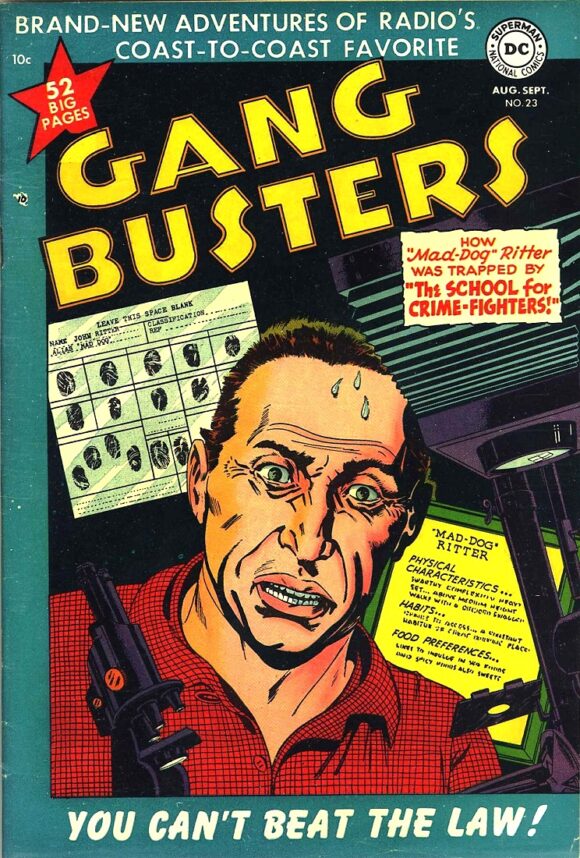
Gang Busters #23 (Aug.-Sept. 1951, DC)
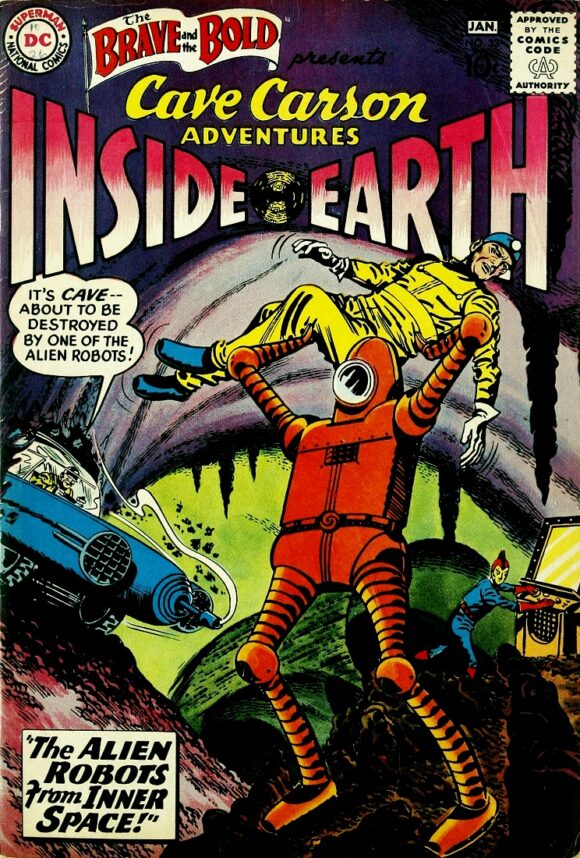
The Brave and the Bold #33 (Dec. 1960-Jan. 1961, DC)
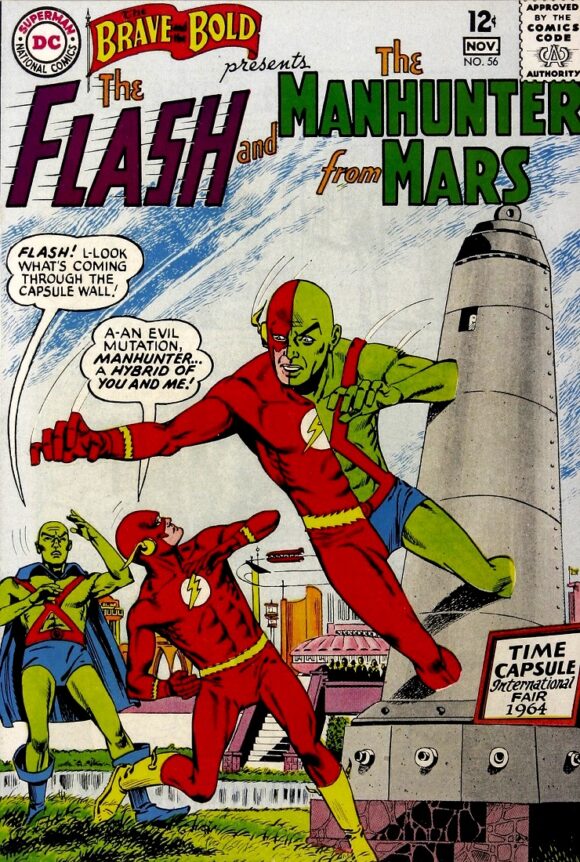
The Brave and the Bold #56 (Oct.-Nov. 1964, DC)
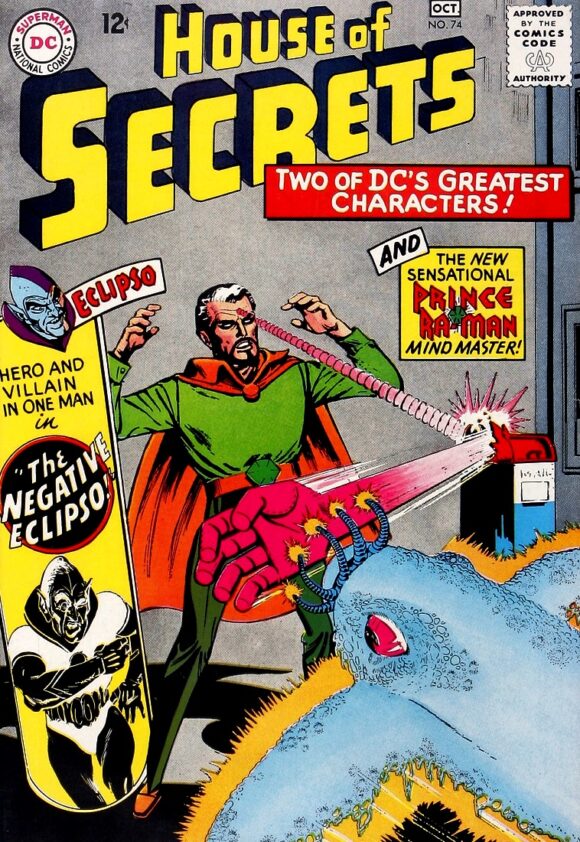
House of Secrets #74 (Sept.-Oct. 1965)
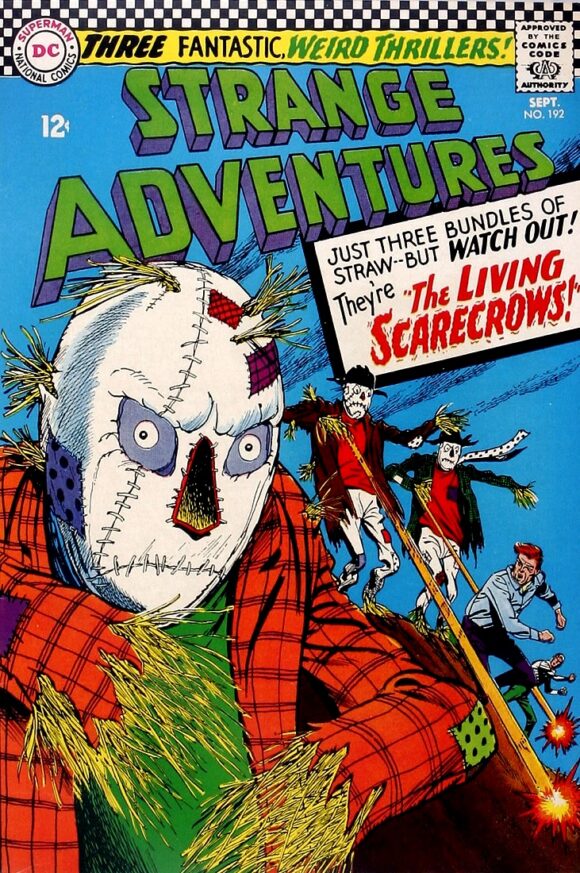
Strange Adventures #192 (Sept. 1966)
Bernard Baily died January 19, 1996, at the age of 79, a true pioneer of the comic book industry.
—
MORE
— 13 BEAUTIFUL ILLUSTRATIONS: The FLASH GORDON of AL WILLIAMSON. Click here.
— A WILL EISNER SALUTE: 13 Lethal Ladies of THE SPIRIT. Click here.
—
PETER BOSCH’s first book, American TV Comic Books: 1940s-1980s – From the Small Screen to the Printed Page, has just been published by TwoMorrows. He has written articles and conducted celebrity interviews for various magazines and newspapers. Peter lives in Hollywood.
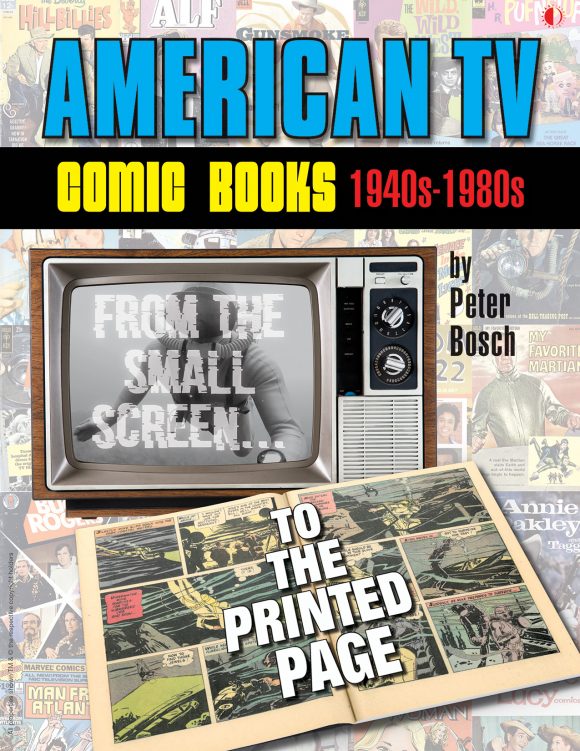

April 5, 2023
Is that THE “ injury to the eye” cover?
April 5, 2023
No, this one was not mentioned by Werthram. You are likely thinking of the classic panel from True Crime Comics #2, which had a woman threatened by a needle to the eye.
April 7, 2023
Wow! Pretty cool story about Norma Shearer who was one of the biggest box office stars at MGM during the 1930s.